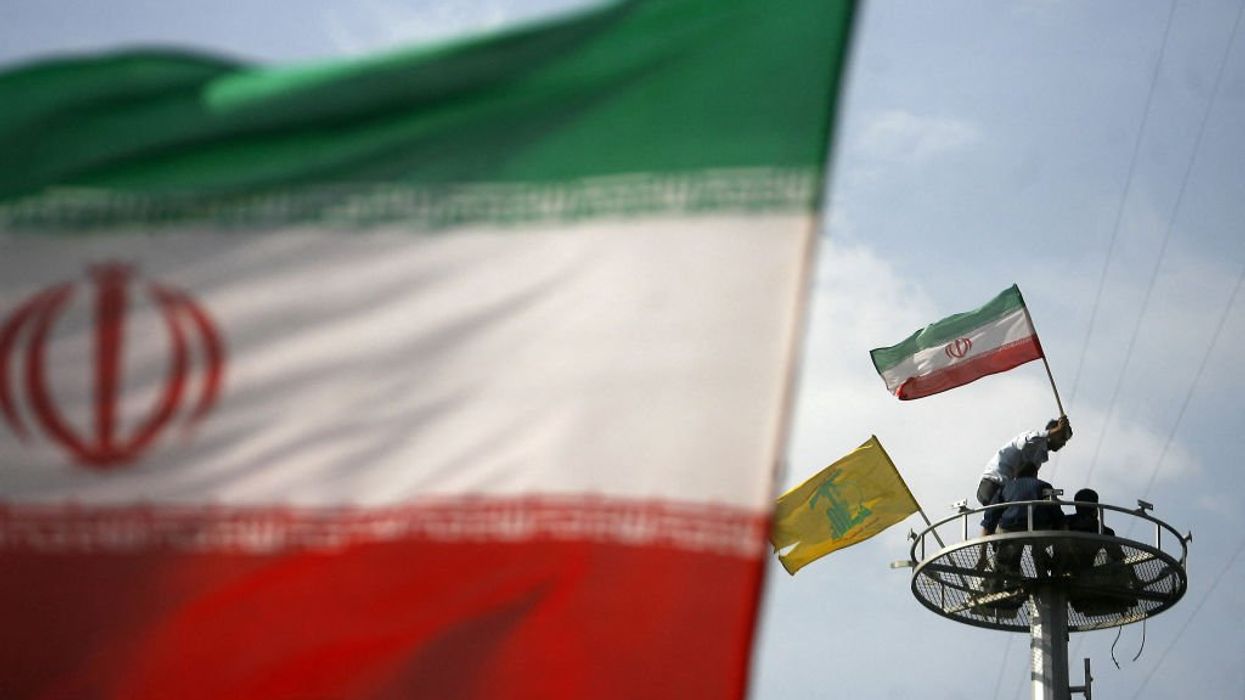
© 2024 Blaze Media LLC. All rights reserved.
 Defense Secretary Leon Panetta is reportedly worried over the growing possibility that Israel will attack Iran over the next few months.
Defense Secretary Leon Panetta is reportedly worried over the growing possibility that Israel will attack Iran over the next few months.
According to The Washington Post, Panetta believes there is a strong likelihood that Israel will strike Iran in April, May or June — before Iran enters what Israelis described as a “zone of immunity” to commence building a nuclear warhead.
In a short matter of time, Israelis fear Iranians will have stored enough enriched uranium in deep underground facilities to successfully produce a weapon -- and that only the United States could then stop them militarily.
Israeli Prime Minister Benjamin Netanyahu doesn’t want Israel's fate to rest solely on American action. The Post adds:
Israeli Defense Minister Ehud Barak may have signaled the prospect of an Israeli attack soon when he asked last month to postpone a planned U.S.-Israel military exercise that would culminate in a live-fire phase in May. Barak apologized that Israel couldn’t devote the resources to the annual exercise this spring.President Obama and Panetta are said to have cautioned the Israelis that the United States opposes an attack, believing that it would derail an increasingly successful international economic sanctions program and other non-military efforts to stop Iran from crossing the threshold. But the White House hasn’t yet decided precisely how the United States would respond if the Israelis do attack.
The Obama administration is conducting intense discussions about what an Israeli attack would mean for the United States: whether Iran would target U.S. ships in the region or try to close the Strait of Hormuz; and what effect the conflict and a likely spike in oil prices would have on the fragile global economy.
Meanwhile, the administration seems to favor staying out of the conflict unless Iran hits U.S. assets.
This U.S. policy — signaling that Israel is acting on its own — might open a breach like the one in 1956, when President Dwight Eisenhower condemned an Israeli-European attack on the Suez Canal. Complicating matters is the 2012 presidential campaign, which has Republicans candidates clamoring for stronger U.S. support of Israel.Administration officials caution that Tehran shouldn’t misunderstand: The United States has a 60-year commitment to Israeli security, and if Israel’s population centers were hit, the United States could feel obligated to come to Israel’s defense.
According to the WaPo, Israelis believe that a military strike could be limited and contained. They would reportedly bomb the uranium-enrichment facility at Natanz and other targets, but an attack on the buried enrichment facility at Qom would be strategically difficult.
Iranians would retaliate, but Israelis doubt that the action would be an overwhelming barrage, with rockets from Hezbollah forces in Lebanon. One Israeli estimate is that the Jewish state might have to absorb 500 casualties.Israelis point to Syria’s lack of response to an Israeli attack on a nuclear reactor there in 2007. Iranians might show similar restraint, because of fear the regime would be endangered by all-out war. Some Israelis have also likened a strike on Iran to the 1976 hostage-rescue raid on Entebbe, Uganda, which was followed by a change of regime in that country.
WaPo adds that U.S. officials see two possible ways to dissuade Israel from such an attack:
Tehran could finally open serious negotiations for a formula to verifiably guarantee that its nuclear program will remain a civilian one; or the United States could step up its covert actions to degrade the program so much that Israelis would decide that military action wasn’t necessary.U.S. officials don’t think that Netanyahu has made a final decision to attack, and they note that top Israeli intelligence officials remain skeptical of the project. But senior Americans doubt that the Israelis are bluffing. They’re worrying about the guns of spring — and the unintended consequences.
But Israeli leaders are reportedly accept, even welcome the prospect of going it alone and demonstrating their fortitude at a time when their security is compromised by the Arab Spring.
Want to leave a tip?
We answer to you. Help keep our content free of advertisers and big tech censorship by leaving a tip today.
Want to join the conversation?
Already a subscriber?
more stories
Sign up for the Blaze newsletter
By signing up, you agree to our Privacy Policy and Terms of Use, and agree to receive content that may sometimes include advertisements. You may opt out at any time.
© 2024 Blaze Media LLC. All rights reserved.
Get the stories that matter most delivered directly to your inbox.
By signing up, you agree to our Privacy Policy and Terms of Use, and agree to receive content that may sometimes include advertisements. You may opt out at any time.


